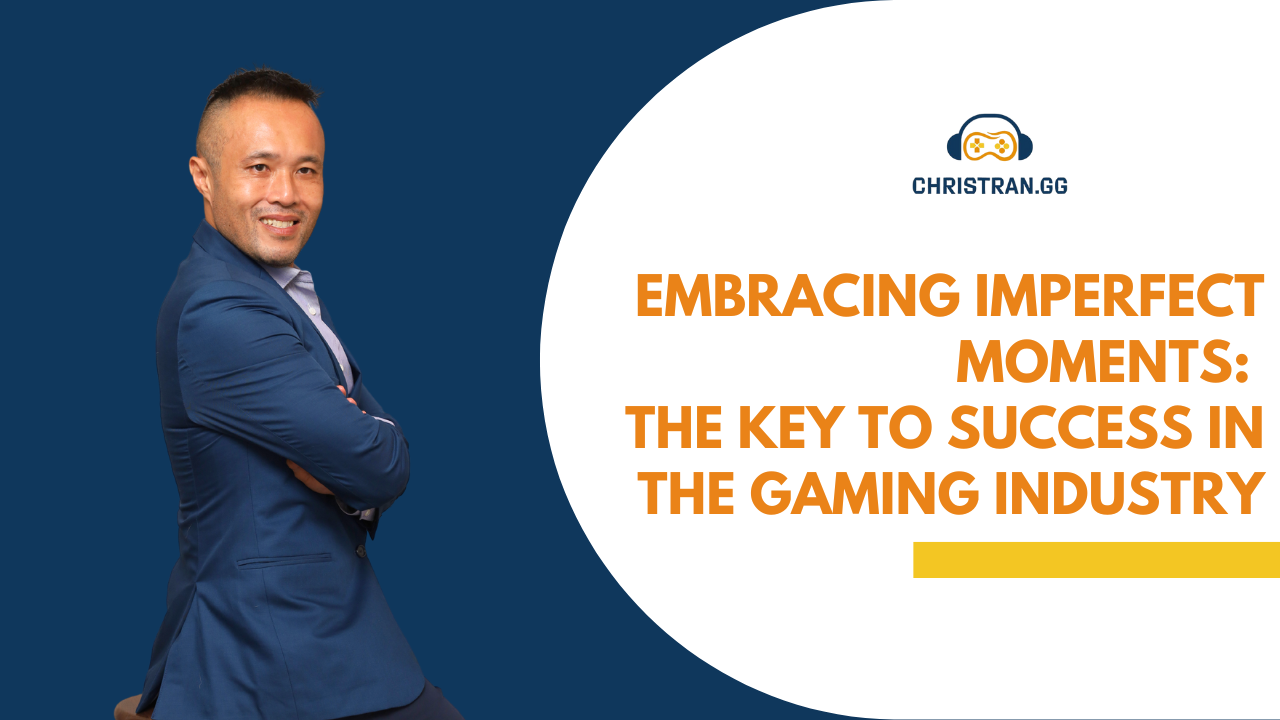Embracing Imperfect Moments: The Key to Success in the Gaming Industry
Jan 02, 2025
As someone who's navigated the complex world of gaming, from launching major titles to organizing large-scale esports events, I've learned that waiting for the perfect moment often leads to missed opportunities. In an industry as dynamic and fast-paced as gaming, the ability to act decisively, even in imperfect conditions, can be the difference between success and stagnation. Let's explore how this mindset applies to game development and career growth in the gaming sector.
The Myth of Perfect Timing in Game Development
The idea that there's a perfect time to start a project, launch a game, or make a career move is a common misconception that plagues many in the gaming industry. This belief can be particularly detrimental in game development, where innovation and timeliness are crucial.
During my time working with various game studios, I've witnessed numerous projects delayed or abandoned because teams were waiting for ideal conditions. However, some of the most successful games were born from imperfect starts:
- "Minecraft": Markus Persson released an early alpha version of the game in 2009, long before it was "perfect." This early release allowed for community feedback and iterative development, leading to its massive success.
- "Stardew Valley": As mentioned in a previous post, Eric Barone didn't wait for the perfect job offer. He started developing his game despite initial rejections, leading to a groundbreaking indie success.
- "Among Us": InnerSloth released the game in 2018 to little fanfare, but continued updating and improving it. The game exploded in popularity two years later, proving that persistence and continuous improvement trump perfect timing.
The cost of procrastination in the gaming industry can be severe:
- Missed market opportunities: Trends in gaming can shift rapidly. Waiting too long might mean your innovative idea becomes yesterday's news.
- Technological obsolescence: Game development tools and platforms evolve quickly. Delaying a project might mean starting over with new technology.
- Lost motivation: The longer you wait, the easier it becomes to abandon your ideas altogether.

Cultivating a Consistent Work Ethic in Gaming
The analogy of working out is particularly apt for game development. Just as physical fitness requires consistent effort, creating successful games demands regular, persistent work - even when you're not feeling particularly inspired or energetic.
Applying the "workout mentality" to game development:
- Set a regular schedule: Commit to working on your game project at set times, regardless of how you feel.
- Start small: Begin with manageable tasks, like sketching a character design or writing a snippet of code.
- Celebrate small victories: Acknowledge progress, no matter how minor it seems.
Strategies for maintaining motivation:
- Break large tasks into smaller, achievable goals.
- Use productivity techniques like the Pomodoro method to maintain focus.
- Join or create a community of fellow developers for mutual support and accountability.
The compounding effects of regular, imperfect action are significant. In my experience, teams and individuals who consistently put in effort, even when conditions aren't ideal, tend to make more progress and achieve better results over time.
Actionable Steps for Overcoming Procrastination in 2025
As we move into 2025, it's crucial to develop strategies for overcoming procrastination and embracing imperfect action. Here are some actionable steps:
- Set realistic, achievable goals:
- Define clear, specific objectives for your game project or career development.
- Use the SMART goal framework: Specific, Measurable, Achievable, Relevant, Time-bound.
- Example: "Complete the basic gameplay loop for my indie game by March 31, 2025."
- Create a supportive environment:
- Set up a dedicated workspace for game development.
- Use tools like Trello or Jira to track progress and visualize your workflow.
- Minimize distractions during your designated work time.
- Leverage industry resources and communities:
- Join online forums like GameDev.net or the Unity forums for support and advice.
- Attend local game developer meetups or virtual conferences.
- Participate in game jams to practice working under time constraints and imperfect conditions.
- Implement a "no zero days" policy:
- Commit to doing at least one small task related to your project every day, no matter how minor.
- This could be as simple as writing a line of code, sketching a concept, or researching a game mechanic.
- Embrace iteration and feedback:
- Release early prototypes or demos to get feedback.
- Use player responses to guide your development, rather than trying to perfect everything in isolation.
- Practice self-compassion:
- Recognize that setbacks and imperfections are part of the process.
- Learn from mistakes rather than letting them discourage you.
Throughout my career in gaming, I've seen countless individuals and teams achieve remarkable things by embracing imperfect action. Remember, every successful game or career in this industry started with someone deciding to act, even when conditions weren't ideal.
As we progress through 2025, I challenge you to reflect on how you're approaching your goals in the gaming industry. Are you waiting for the perfect moment, or are you taking consistent, imperfect action towards your dreams?
Share in the comments: What's one small step you can take today towards your gaming industry goals, even if conditions aren't perfect? Your journey in gaming starts now, in this imperfect but opportunity-filled moment. Let's make 2025 a year of action and progress!
